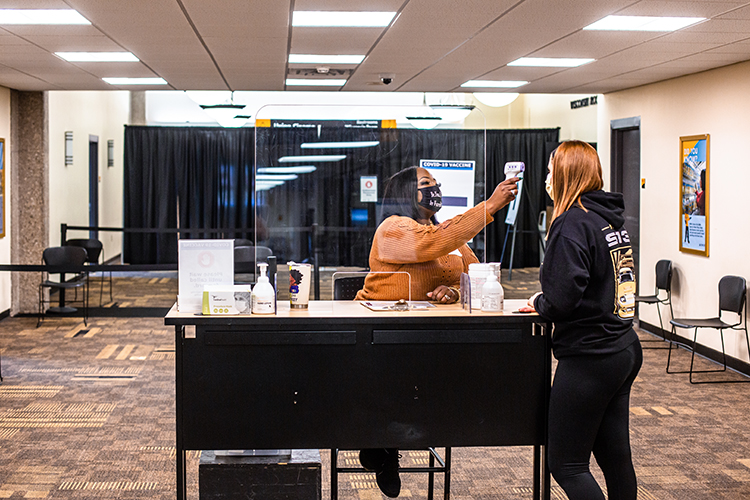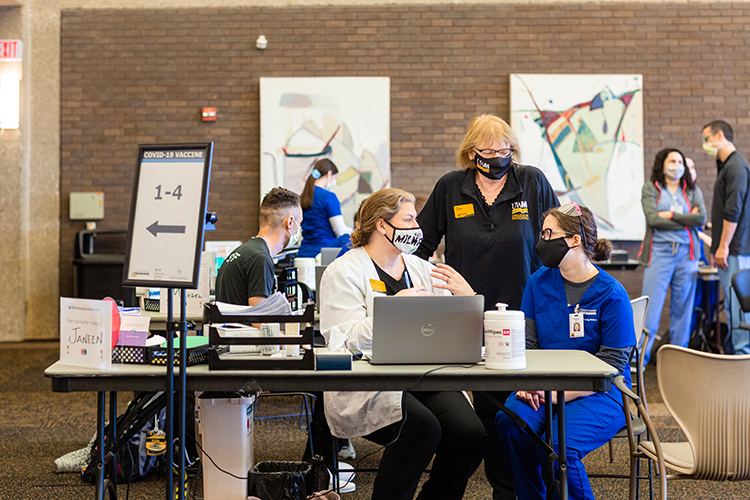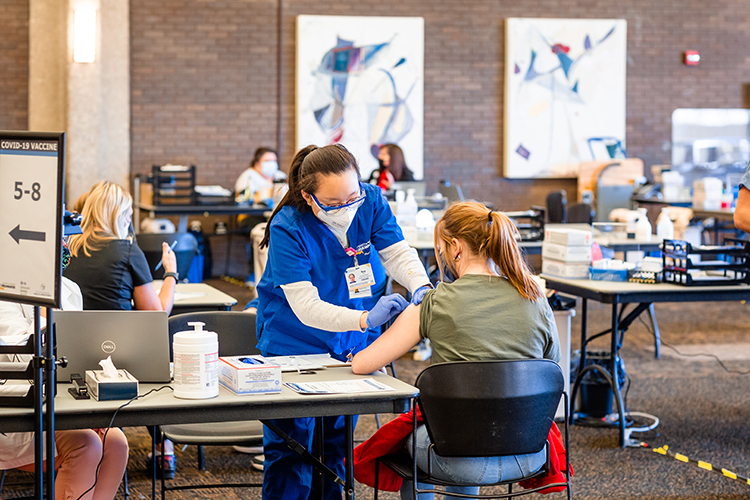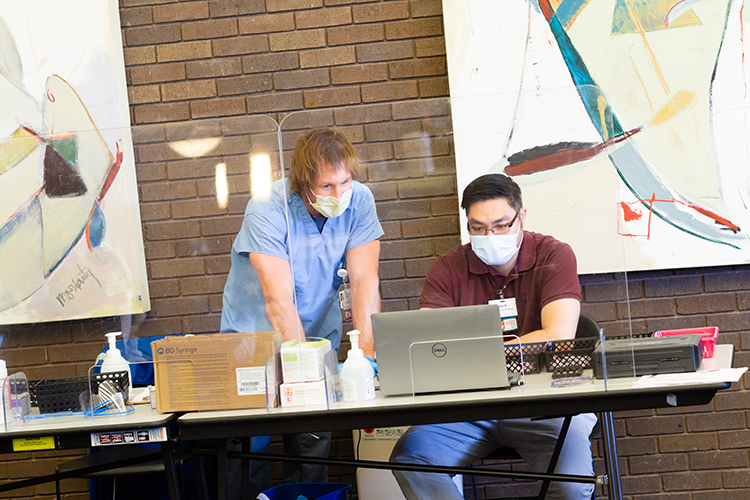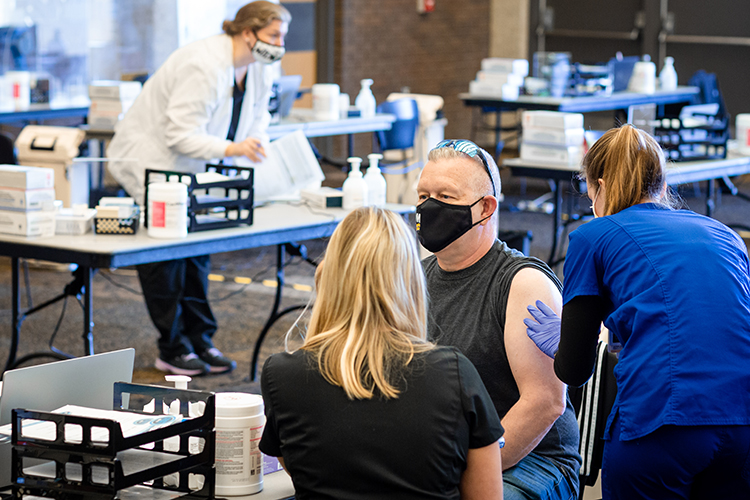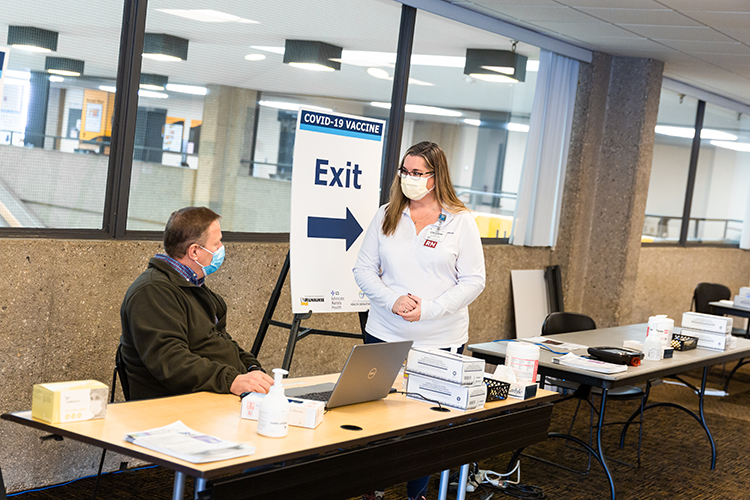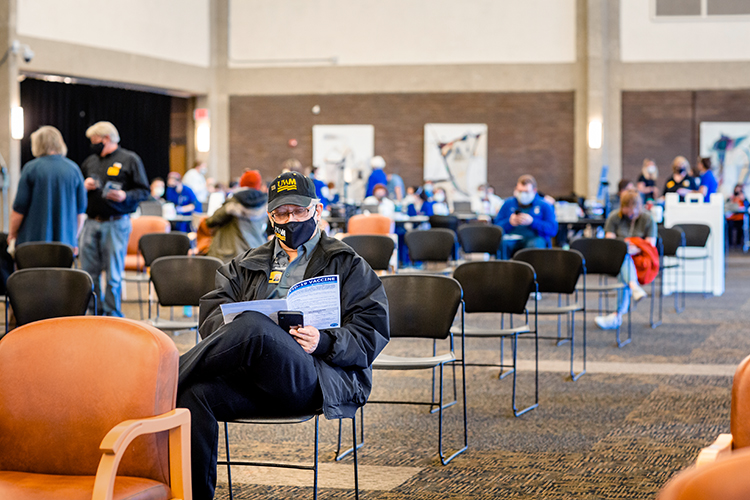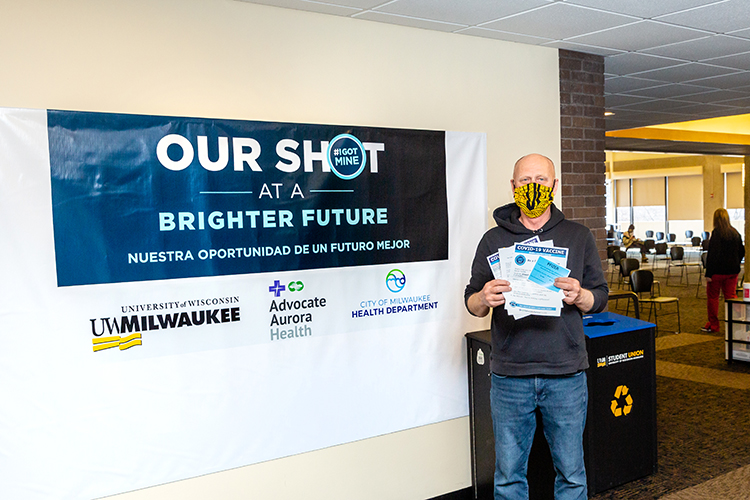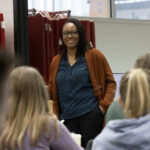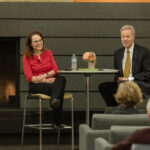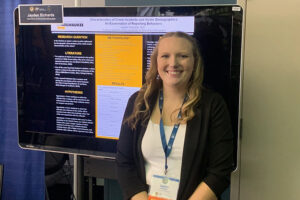Quick and easy is how John Ozanich, third shift custodial supervisor, described getting vaccinated against the coronavirus at UWM’s clinic in the Student Union’s Wisconsin Room last week.
Ozanich, who is eligible to get the shot, said it lessens his worry of becoming seriously ill. And he hopes his decision will help reassure colleagues who are hesitant. “It’s important that others see that I’m all-in for vaccination because there’s a lot of misinformation going around,” he said.
After almost exactly a year of observing safe guidelines, such as avoiding crowds and wearing a mask around others, the first group of campus faculty and staff members said they could finally see the beginning of the end of the most restricted year of their lives.
The UWM vaccination clinic began operating last week through a partnership with Advocate Aurora Health and the City of Milwaukee Health Department. Staffed primarily by UWM students from the College of Nursing, the clinic distributed 396 doses between March 3 and 5.
Invitations being sent
Members of the UWM community who meet Wisconsin’s vaccination eligibility criteria will receive an email with directions on how to schedule an appointment through Advocate Aurora Health. Emails will be sent as vaccination appointments are available. Campus members who want to add their names to an on-call list – people who may be called in the event that some appointments are not kept – can do so by completing the vaccination interest form.
“We are doing our best to identify members of our campus communities who are 65 and older and those currently teaching or working face-to-face with students and reach out to them directly about vaccination,” said Chancellor Mark Mone. “Our goal is to vaccinate them as quickly as possible and then move on to others who are eligible.”
Those who receive a first dose will be automatically scheduled for and receive a second dose. The clinic at the Milwaukee campus is expected to open to all eligible people in the coming weeks.
Catherine Jones, a PhD student in anthropology who also teaches in-person labs in the department, was getting the vaccine so she could teach face-to-face without unwittingly contributing to the spread of the disease.
“I think it’s important for people to get the vaccine and also to talk about it and demonstrate the safety of it,” Jones said. “There’s a certain amount of responsibility that we have to protect vulnerable populations.”
Lab work a necessity
It has been very difficult for her and other graduate students to conduct research in the last year, she said, because much of the work must be accomplished in a lab, ideally in collaboration with others. “A communal research environment helps to generate new ideas,” she said. “Grad students need that experience to be able to find jobs in the field.”
Obtaining hands-on experience is also important for the nursing students involved when they are interviewing for jobs. That’s one reason students volunteered to work at the clinic, said Morgan Koerber, a senior in her last semester.
“This gives me the opportunity to be involved in clinically work during a global pandemic, something that doesn’t occur very often on this scale,” Koerber said. “I’m excited to be part of the process.”
200 nursing students volunteer
To sweeten the pot for nursing student volunteers, the UW System authorized a $500 tuition credit for those who work two days, or 16 hours, at the clinic. That was attractive to senior Hannah Polan.
“I am very thankful that the UWM is reducing some of my financial burden,” Polan said. “If I am being honest, it is a factor in my participation.”
A total of 200 student nurses are volunteering at the UWM clinic, serving in their individual clinical groups of eight, said College of Nursing Dean Kim Litwack.
“These students were so happy to put their scrubs on and gather as a clinical group for this,” Litwack said. “We’ve all been carrying a weight around for so long, and we’re not even aware of it. Now, our cloaks of invisibility are starting to lift.”
